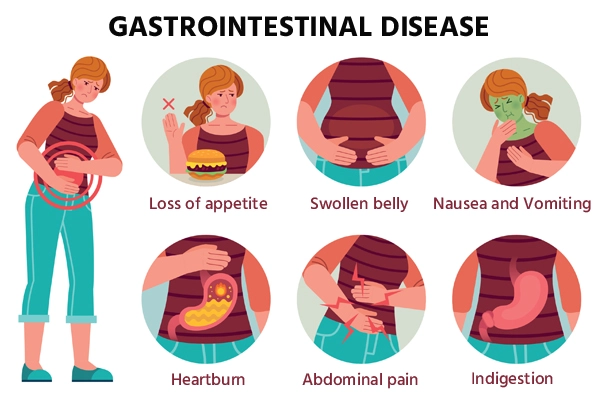Exploring the Pros and Cons of Gastroscopy

Gastroscopy, also known as upper endoscopy or esophagogastroduodenoscopy (EGD), is a commonly performed medical procedure used to diagnose and treat various gastrointestinal conditions. Like any medical intervention, gastroscopy comes with its own set of advantages and disadvantages. In this comprehensive guide, we’ll delve into the pros and cons of gastroscopy to help you make an informed decision about this procedure.
Understanding Gastroscopy
Before we discuss its gastroscopy pros and cons let’s take a moment to understand what gastroscopy entails. During a gastroscopy procedure, a thin, flexible tube with a camera and light source is inserted through the mouth and into the esophagus, stomach, and upper part of the small intestine. This allows healthcare providers to visualize the internal structures of the gastrointestinal tract and perform diagnostic or therapeutic interventions as needed.
Pros of Gastroscopy
1. Accurate Diagnosis
One of the primary advantages of gastroscopy is its ability to provide a direct visualization of the GI tract, allowing for accurate diagnosis of various conditions such as ulcers, tumors, inflammation, and abnormal growths. This enables healthcare providers to initiate appropriate treatment strategies promptly.
2. Minimally Invasive
Gastroscopy is a minimally invasive procedure that typically does not require surgical incisions. Patients usually undergo the procedure under sedation, minimizing discomfort and allowing for a quicker recovery compared to traditional surgical interventions.
3. Immediate Intervention
In addition to diagnosis, gastroscopy allows for immediate therapeutic interventions. During the procedure, healthcare providers can perform biopsies, remove polyps, control bleeding, and dilate strictures, offering immediate relief and improving patient outcomes.
4. Outpatient Procedure
Many gastroscopy procedures are performed on an outpatient basis, meaning patients can return home on the same day. This eliminates the need for hospitalization and allows individuals to resume their normal activities relatively quickly.
5. Versatility
Gastroscopy is a versatile procedure that can be adapted to meet the specific needs of individual patients. It can be used for both diagnostic and therapeutic purposes, making it a valuable tool in the management of various gastrointestinal conditions.
Cons of Gastroscopy
1. Discomfort and Sedation Risks
While gastroscopy is generally well-tolerated, some patients may experience discomfort or gagging sensations during the procedure. Sedation is often administered to alleviate these symptoms, but it carries a small risk of complications such as respiratory depression or allergic reactions.
2. Potential Complications
Like any medical procedure, gastroscopy carries a risk of complications, although they are relatively rare. These may include perforation of the GI tract, bleeding, infection, or adverse reactions to medications or anesthesia. However, the likelihood of experiencing these complications is low, especially when the procedure is performed by experienced healthcare professionals.
3. Cost
Gastroscopy may involve significant costs, especially for patients without adequate insurance coverage. Factors such as facility fees, physician fees, sedation costs, and any additional procedures or treatments can contribute to the overall expense.
4. Preparation Requirements
Prior to undergoing gastroscopy, patients are typically required to follow certain preparation instructions, such as fasting for a specified period and discontinuing certain medications. This can be inconvenient for some individuals and may require adjustments to their daily routine.
5. Anxiety and Psychological Impact
For some patients, the anticipation of undergoing a gastroscopy procedure may cause anxiety or psychological distress. Fear of the unknown, concerns about discomfort, or worry about the results of the procedure can contribute to heightened stress levels.
Gastroscopy: Weighing the Pros and Cons
In summary, gastroscopy offers numerous benefits in terms of accurate diagnosis, immediate intervention, and minimal invasiveness. However, it’s essential to consider the potential drawbacks, such as discomfort, risks of sedation, and financial implications. Ultimately, the decision to undergo gastroscopy should be made in consultation with a healthcare provider, weighing the pros and cons based on individual circumstances and medical needs.
For more information on the pros and cons of gastroscopy, visit Curasia.com.




